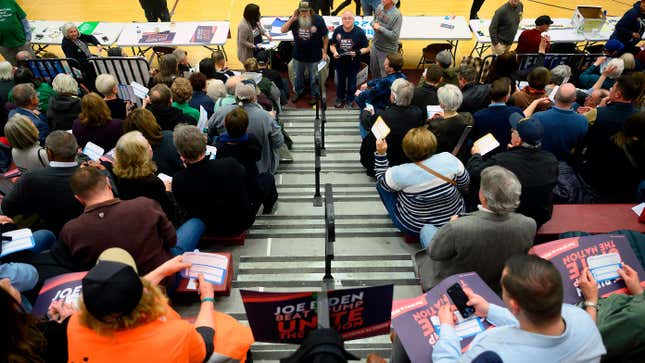Dems Finally Admit Iowa Is Too White to Pick the President
The party looks like it's getting serious about reforming the early nominating process.
NewsPolitics

Following the absolute clusterfuck that was the 2020 Iowa Caucus—where tech problems preceded Mayor Pete prematurely declaring victory, while Bernie Sanders won the popular vote—Democratic party leaders look like they’re getting serious about reforming the early presidential nominating process.
Some backstory: Iowa is the first state on the Democratic presidential caucus-or-primary calendar, and while winning it doesn’t get a candidate enough delegates to become the nominee, it does generate a ton of headlines and momentum going into the three other early states, New Hampshire, Nevada, and South Carolina. Iowa is 90.6 percent white, according to the Census bureau, and is now solidly Republican: The state last went blue in 2012 to help re-elect President Barack Obama, but President Donald Trump won it by more than 9 points in 2016 and 8 points in 2020.
Aside from Iowa not being representative of the country, the caucus format itself is byzantine and arguably a form of voter disenfranchisement. People don’t just walk in and cast a ballot, they have to wait to see if their candidate gets at least 15 percent of the vote, and if not, they can “re-align” with another candidate, which means literally going and standing in a different candidate’s corner of the high school gym or wherever.
-

-

-

-

-

-

-

-

-

-

-

-

-

-

-

-

-

-

-

-

-

-

-

-

-

-

-

-

-

-

-

-

-

-

-

-

-

-

-

-








































